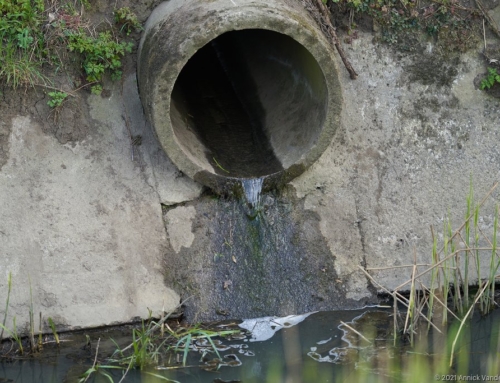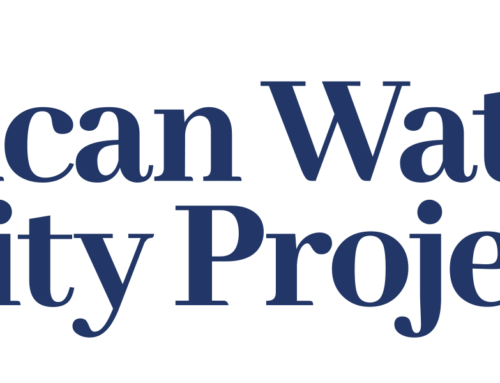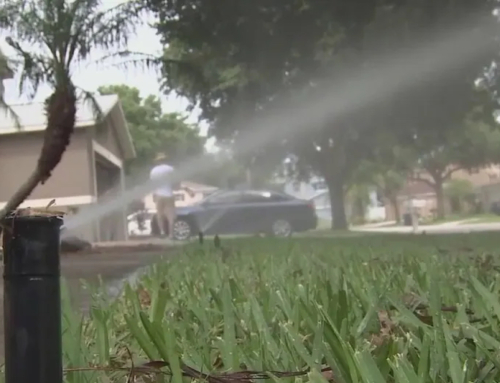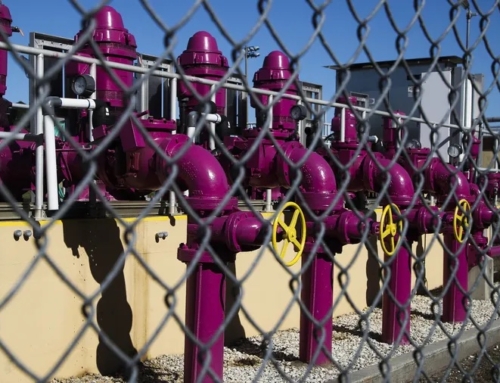Authored by Florida TaxWatch’s Former Lieutenant Governor Jeff Kottkamp and American Water Security Project’s Executive Director Dr. Brandon D. Shuler, ‘Improving Florida’s water infrastructure requires fiscally responsible approach’ originally appeared in the Orlando Sentinel October 22, 2023.
Thirty percent of Florida’s residential population utilizes septic systems to treat their wastewater. That 30% represents 12% of the entire United States’s septic tank usage. With 76% of Floridians living in coastal zones, septic tank effluent is too rarely mitigated, and is a completely preventable recipe for disaster — yet we frequently ignore septic systems’ dangers while focusing our attention elsewhere.

Florida TaxWatch Executive Vice President and General Counsel, Former Lieutenant Governor Jeff Kottkamp
The reality: septic tank effluent fuels harmful algal blooms; feeds really dangerous bacteria including Vibrio vulnificus, the “flesh-eating bacteria;” and contaminates ground and surface waters.
Through grant programs including DEP’s Wastewater Grant Program, the state will match local investments in water infrastructure repairs and improvements and assure taxpayers that the proposed projects are properly vetted. However, a great many water projects funded by the state receive funding through “member requests,” earmarks that distract from the focus on quality, long-lasting projects and from the logical, efficient investments of tax dollars. We can do better.

AWSP Executive Director, Dr. Brandon D. Shuler
Sen. Jason Brodeur’s (R-Lake Mary) Senate Bill 1632 Environmental Protection became law this year and amends the Indian River Protection Act to require the removal of all residential and commercial septic tanks in the Central and Northern Indian River Lagoon Basin Management Action Plans (BMAPs). These systems must be converted to centralized sewerage by 2030. The bill also mandates that any wastewater treatment facilities within the BMAP be upgraded to advanced wastewater treatment technologies that remove almost all nitrogen and phosphorous from the plant’s effluent.
In communities and developments that do not have access to centralized sewerage, septic tank owners must upgrade their septic tanks to enhanced systems that remove more than 65 percent of excess nitrogen from its effluent.
In addition to the mandates above, Brodeur’s bill defines the intent to appropriate $100 million to water infrastructure upgrades and repairs for the Indian River Lagoon BMAP and $25 million to the Caloosahatchee watershed.
The bill makes giant strides toward securing Florida’s water quality and supply. Its language also offers a framework to address all inadequate approaches to wastewater that harms our springs, lakes and coastal waters. Florida TaxWatch has outlined its recommendations in the 2023 research report “Septic-to-Sewer: Protecting Florida’s Ground and Surface Water.”
We urge the Florida Legislature to task the Department of Environmental Protection to create and implement a statewide plan to improve, repair or develop water and wastewater infrastructure statewide, with an emphasis on the development of central sewer lines and wastewater treatment facilities and the removal or enhancement of septic tanks. Comprehensive plan approval of projects should be based upon established statewide priorities and demonstrated needs.
We are long overdue for these upgrades. The American Society of Civil Engineers rates Florida’s water infrastructure at a lowly C-minus. Previous appropriations intended to fix our wastewater infrastructure are godsends. However if we are to protect the environment and our water supplies we must ensure that all wastewater pollution is addressed. Septic tanks, Florida’s human waste tragedy of the commons, need special attention.
To ensure a more efficient system that addresses water infrastructure issues of all stripes, we hope that the Florida Department of Environmental Protection will work with the Florida Legislature to pass legislation that incorporates the provisions of Executive Order 23-06: Achieving Even More for Florida’s Environment, into Florida Statutes.
We recognize that not all septic system users live in areas where connection to centralized sewage is practicable. In these rare cases, we contend that law should require enhanced, nutrient-reducing technology for septic tanks within all Florida BMAPs or in an areas with a high-water table, especially in coastal zones.
We also recognize that in many cases, Florida homeowners relying on septic tanks may need financial assistance when connecting to centralized systems. We urge the Florida Legislature to expand existing financial assistance programs and work with the business and non-profit communities to help economically challenged property owners remediate septic tank issues, while developing and implementing a septic tank inspection and monitoring program.
Florida TaxWatch and the American Water Security Project agree that it is only appropriate that we ensure all aspects of Florida’s water infrastructure improvements are addressed efficiently, with strong fiscal discipline, and a systematic and reasoned manner that protects Florida waters as well as the Florida taxpayer.
Lt. Governor Jeff Kottkamp is Florida TaxWatch’s Executive Vice President and General Counsel, and served in a leadership role in the Florida House of Representatives from 2000 to 2006 before serving as Florida’s 17th Lieutenant Governor from 2007 until 2011. Dr. Brandon Shuler is the co-founder and Executive Director of the American Water Security Project, which advocates for policy and investments that protect American waters and water supplies.





